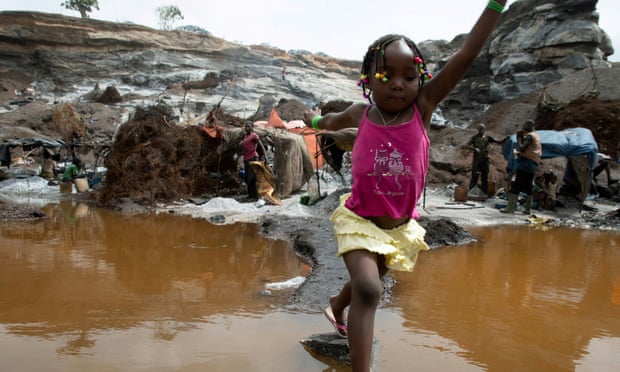Larger economies have been flexible and creative coping with Covid’s impact – the same mindset needs to be applied to helping poorer countries.
The International Monetary Fund (IMF) predicts Africa will suffer its worst recession since the 1970s. For the first time since the 1990s, extreme poverty will increase. The annual death toll from HIV, tuberculosis and malaria is set to double. We also fear a near doubling in the number of people facing starvation. Many girls out of school will never go back. Life expectancy will fall.
All this will fuel grievances, and in their wake conflict, instability and refugee flows, all giving succour to extremist groups and terrorists. The consequences will reach far and last long. The Organisation for Economic Co-operation and Development and G20 nations will feel the blowback just as some start to see light at the end of the Covid tunnel.
It is hard to find a single policymaker who contests this analysis. This makes the tepid response all the more curious.
The UN’s global humanitarian response plan, progressively updated as the virus spread between March and July, now seeks $10bn (£7.8bn) to mitigate the damage over the next six months. It is just 25% financed, and what money has been provided comes almost entirely from western governments. Failure to fund the plan might be understandable, given the fiscal pressures many now face, but it is not wise.
Harder to understand is the jarring disconnect between the flexibility and creativity larger economies displayed in coping with the impact of the pandemic domestically and the restrictive mindset they have brought to bear in determining what help the international financial institutions (IFIs) can offer their poorest members. Even the obvious measures agreed during the 2008–09 financial crisis have not been adopted. Many countries need more help, but the most vulnerable and fragile countries need it most and are not being prioritised in the way they should.
But late is still better than never, and three immediate steps should be taken:
First, the shareholders of the IMF should agree a general issue of special drawing rights, on a larger scale than during the 2008–09 crisis. The concern that the benefits of this would mostly accrue to better-off economies could be addressed by an agreement among the G20 to forgo access to their allocations, allowing them to be redistributed to the most vulnerable countries on the basis of objective criteria.
Second, expand the debt service suspension initiative the G20 agreed last spring. Payment holidays need to be offered by more creditors and extended until the end of 2021, because it is clear that the economic impact of the crisis will persist well into next year. We are some way off the peak of the pandemic in the most fragile countries. Now is also the moment to recognise the fact that some countries will need more generous help, including debt restructuring and writedowns, and to agree the arrangements for that.
Third, the IFIs should be more aggressive in deploying their existing balance sheets to support their weakest members.
Seeking to preserve the balance sheet during the current crisis is the wrong policy goal: the point of a strong balance sheet is to be able to use it in extreme circumstances. What worse problem are we waiting for? Increase lending now. The International Development Association – the concessional arm of the World Bank most relevant to the poorest countries – can borrow more on the markets to increase the availability of affordable money to its most vulnerable members. Its contributors should sanction faster use of the resources provided through the 2019 replenishment, recognising that there may then be a need to bring forward the timing of the next replenishment. The bank should also build further on the steps taken as part its last capital increase to differentiate the terms it offers across its clients, with more generosity to the weakest.
None of this breaks much new ground or requires ripping up the rule book in the way most of the G20 have – rightly – done at home. Nor does it require much immediate fiscal effort from the better-off countries, because it can largely be covered from the IFIs’ existing resources. The amounts required pale in comparison with domestic stimulus measures. What it does need is political will and coordination and cooperation among the largest economies.
Failing that, problems will accumulate, spread, and be back to bite those currently turning a blind eye.
Either way, decisions taken now will have consequences for decades.
Mark Lowcock is the UN’s undersecretary general for humanitarian affairs
Source: The Guardian






